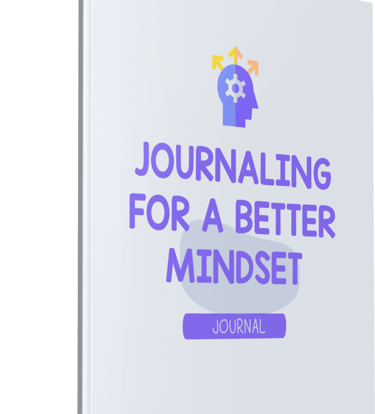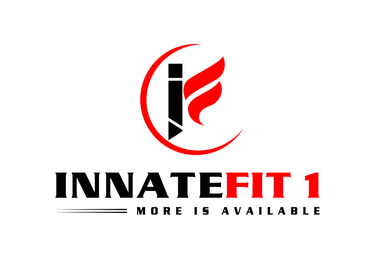Visit Innatefit1.com for exercise wear and equipment!!!
Simple Reflection Techniques to Spark Personal Growth
Discover practical methods to pause, evaluate, and learn from your daily experiences. Whether you're seeking clarity, motivation, or a fresh perspective, these straightforward strategies will help you cultivate deeper self-awareness and move forward with confidence. Start your journey to becoming your best self today!
SELF-HELPHEALTHY LIFESTYLECONFIDENCE BUILDING
Joseph Battle
4/25/20254 min read


Introduction
Personal growth is the ongoing process of understanding and developing oneself to achieve one's fullest potential. It encompasses various dimensions, including emotional, intellectual, and spiritual development.
At the heart of this developmental journey lies reflection, a powerful tool that enables individuals to examine their thoughts and experiences critically. Reflection strengthens self-awareness, facilitates more profound understanding, and inspires meaningful change.
In this article, we will explore personal growth reflection techniques, detailing a range of simple but effective methods. By embracing these techniques, individuals can ignite their journey toward self-discovery and transformation.
Understanding Reflection
Self-Reflection
Self-reflection is an inward journey that encourages individuals to analyze their thoughts, behaviors, and life experiences. It helps identify patterns, recognize emotions, and uncover unconscious motivations that drive one's decisions.
This practice is crucial for cultivating self-awareness and promoting personal growth.
Distinction Between Introspective Reflection Tools and Mindful Self-Inquiry
While both introspective reflection tools and mindful self-inquiry aim to deepen self-understanding, they differ in approach. Introspective reflection tools often involve structured methods, such as journaling or SWOT analysis, to facilitate self-assessment.
Mindful self-inquiry, on the other hand, promotes present-moment awareness and curiosity about one’s thoughts and feelings without judgment. Together, these practices empower individuals to enhance their personal development.
The Power of Personal Growth Reflection Techniques
How Reflection Fuels Personal Growth
Engaging in reflection allows individuals to draw lessons from past experiences, thus fueling their personal growth. By identifying strengths and weaknesses, one can make informed decisions about the future.
Reflection catalyzes change, providing a roadmap toward improvement and fulfillment.
The Role of Self-Awareness in Transformation
Self-awareness is the cornerstone of personal growth. It involves recognizing one’s thoughts, emotions, and behaviors and understanding how they influence interactions with the world. Through reflection, individuals can cultivate self-awareness, ultimately leading to profound transformation and a more authentic self.
Simple Reflection Techniques to Consider
1. Journaling
Journaling is a versatile and powerful introspective reflection tool that allows individuals to articulate their inner thoughts and feelings. Here are a few methods to explore:
Daily Reflection Journals: Set aside time each day to write about your experiences and feelings. This practice not only promotes clarity but also encourages gratitude and self-exploration.
Gratitude Journals: Write down three things you are grateful for each day. This exercise fosters a positive mindset and enhances emotional resilience.
Prompted Journaling Techniques: Use specific prompts such as “What did I learn today?” or “What challenges did I overcome?” to guide your reflections and stimulate deeper insights.
2. Meditation and Mindfulness Practices
Integrating meditation and mindfulness into your daily routine can significantly enhance self-awareness and self-reflection.
Guided Meditation for Self-Reflection: Various audio and video resources offer guided meditations that focus on introspection. These can help you explore emotions and thoughts in a calm and supportive environment.
Mindfulness Exercises to Enhance Awareness: Engage in simple mindfulness activities, such as mindful breathing or body scan exercises, to cultivate greater awareness. These practices cultivate present-moment awareness, facilitating deeper self-inquiry.
3. Visualization Techniques
Visualizing your goals and aspirations can clarify your direction in life.
Creating a Vision Board: Compile images and phrases that represent your dreams and aspirations. Display it prominently to remind yourself of your goals and keep you motivated.
Guided Visualization Exercises: Participate in guided visualizations that immerse you in potential future scenarios. This will help you understand your desires and the steps needed to achieve them.
4. Thought-Provoking Questions
Asking yourself the right questions can unlock new insights.
List of Questions for Self-Inquiry: Consider questions like "What are my core values?" or "What fears are holding me back?" These prompts encourage thoughtful self-exploration and growth.
How to Use Questions in Personal Reflection: Set aside time to journal or meditate on these questions. Allow yourself to write freely without censorship, fostering authentic self-discovery.
5. Peer Reflections and Discussions
Sharing insights with others can enhance your reflection process.
Importance of Sharing Insights with Others: Engaging in discussions about personal experiences and challenges can provide new perspectives and reveal blind spots in your self-understanding.
Structured Reflection Sessions Among Peers: Form small groups to share reflections in a safe environment. Structured reflections encourage accountability and foster mutual support in personal growth.
Specialized Introspective Reflection Tools
1. SWOT Analysis for Self-Reflection
A practical approach to personal assessment is the SWOT analysis, which involves identifying your Strengths, Weaknesses, Opportunities, and Threats. By conducting a SWOT analysis, you can systematically evaluate your strengths, weaknesses, opportunities, and threats, setting the stage for targeted growth.
2. 360-Degree Feedback
Harnessing feedback from peers, colleagues, and mentors provides invaluable insights into your performance and behavior. This comprehensive view informs your self-reflection, helping you identify patterns and areas of improvement that might not be apparent from your perspective alone.
Incorporating Creativity into Reflection
Engaging in creative activities can enhance self-reflection and facilitate personal growth.
Artistic Expression as a Reflection Tool: Explore painting, drawing, or other creative endeavors to express your feelings and thoughts. Artistic creation serves as a unique lens for understanding your internal world.
Techniques for Creative Self-Discovery: Engage in activities like writing poetry or crafting stories that reflect your experiences and emotions. This fosters a deeper connection with your thoughts and insights.
Conclusion
In summary, the journey of personal growth is deeply enriched by the practice of reflection. By employing various personal growth reflection techniques, individuals can foster self-awareness, glean insights from their experiences, and promote meaningful change in their lives.
As you navigate your personal development journey, we encourage you to integrate these reflection practices into your daily routine. Embrace the transformative power of self-reflection, and allow it to guide you toward a more fulfilling life.
FAQs
1. How often should I practice reflection for personal growth?
While it's beneficial to practice reflection daily, even setting aside a few moments each week can lead to significant insights.
2. Can reflection practices be done with a friend or partner?
Absolutely! Engaging in peer reflection can deepen your insights and provide valuable external perspectives.
3. What if I struggle with introspection?
It’s common to face challenges in introspection. Start small by journaling or answering simple self-reflection questions.
4. How can I make reflection a habit?
Consistency is key. Setting aside a specific time each day or week for reflection can help establish it as a regular practice.
By embracing these personal growth reflection techniques, you are taking powerful steps towards self-discovery and transformation. The journey begins with a single thought; allow reflection to guide you along the way.




